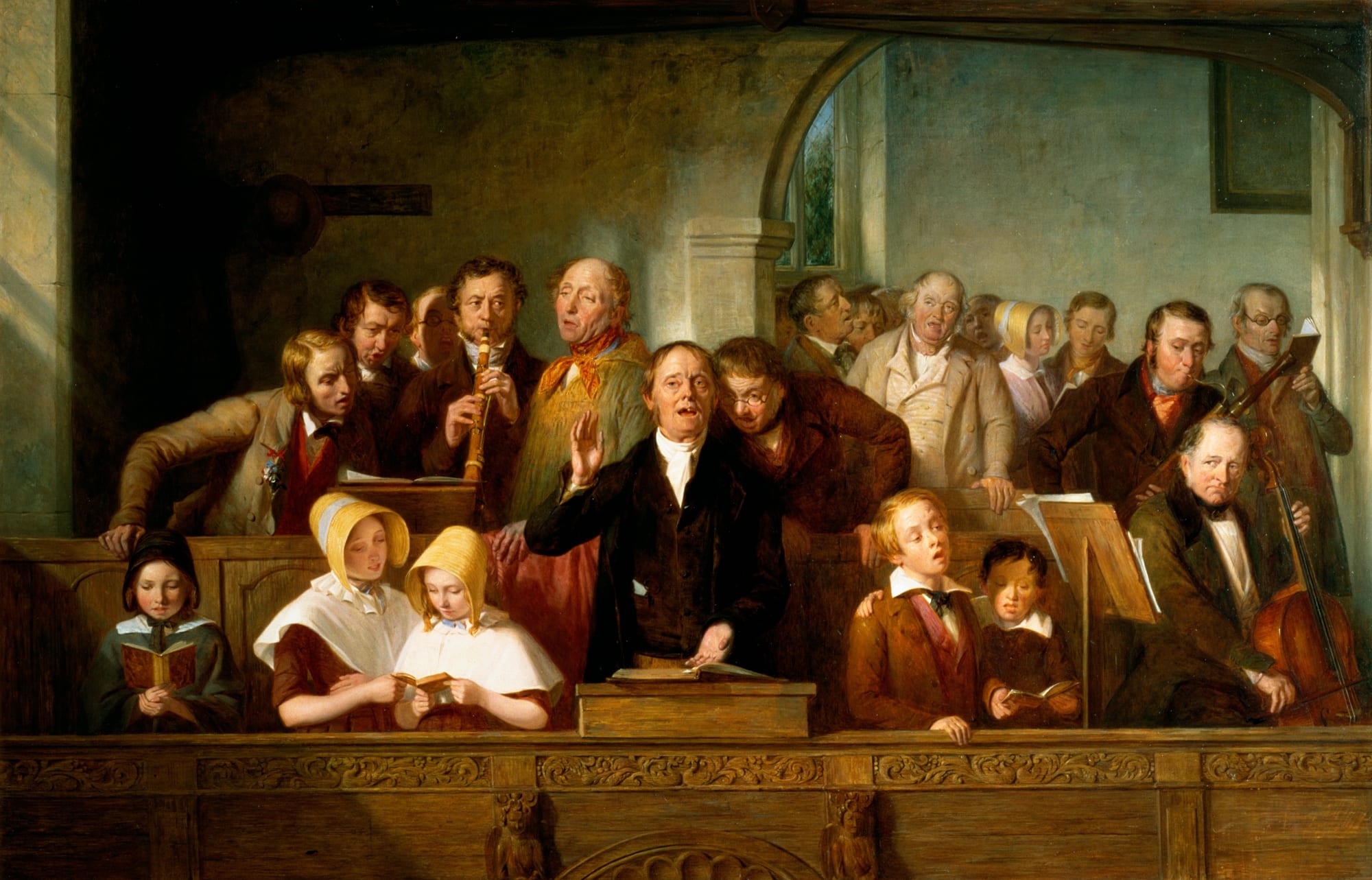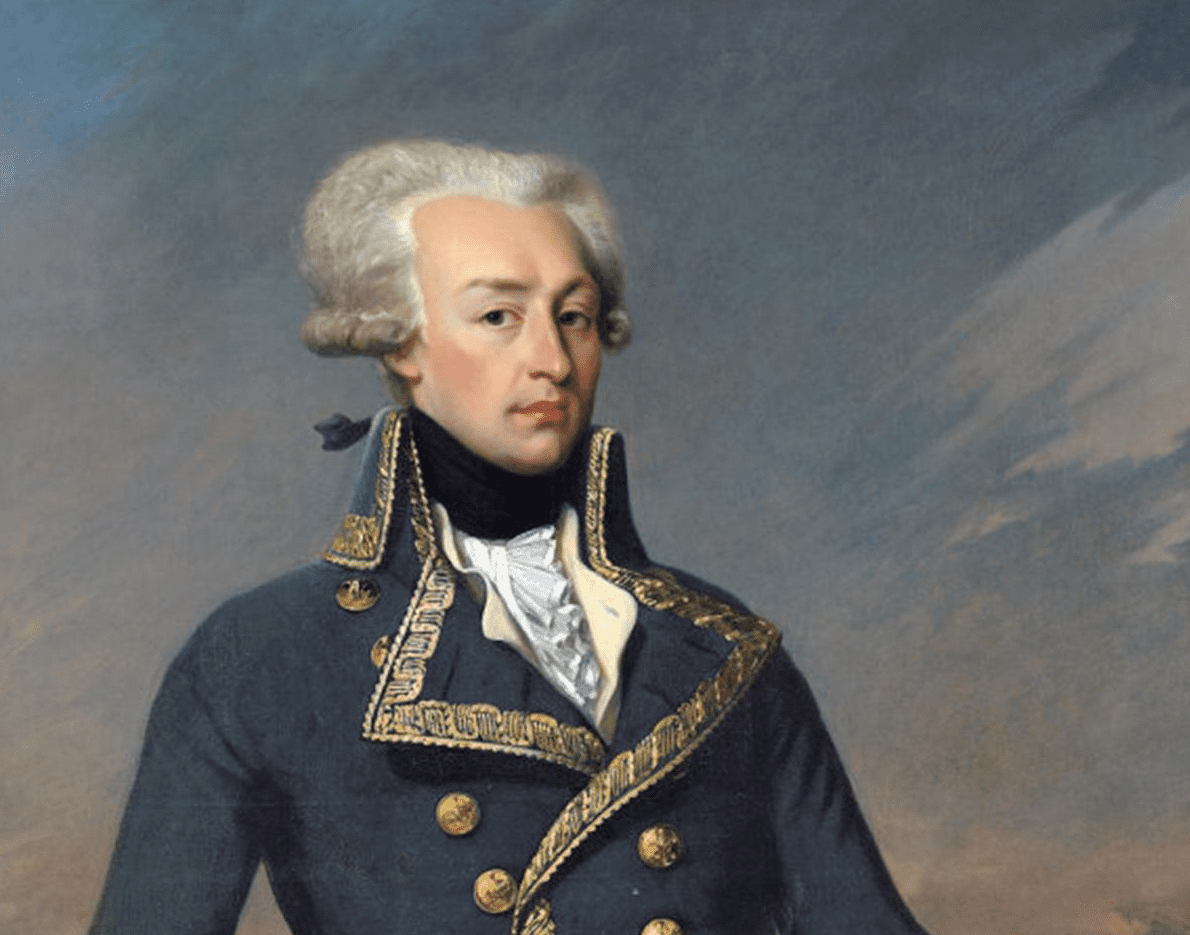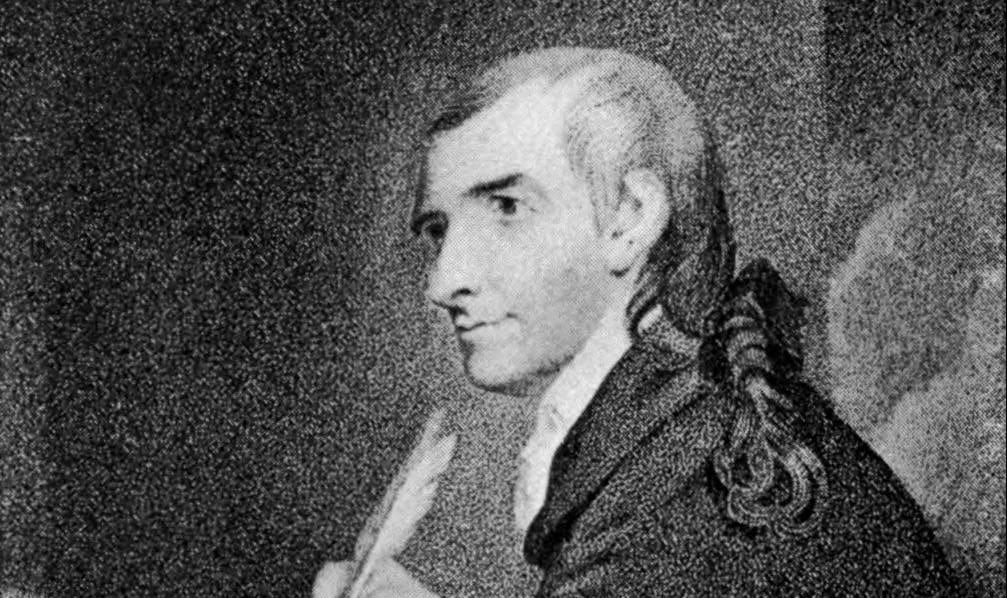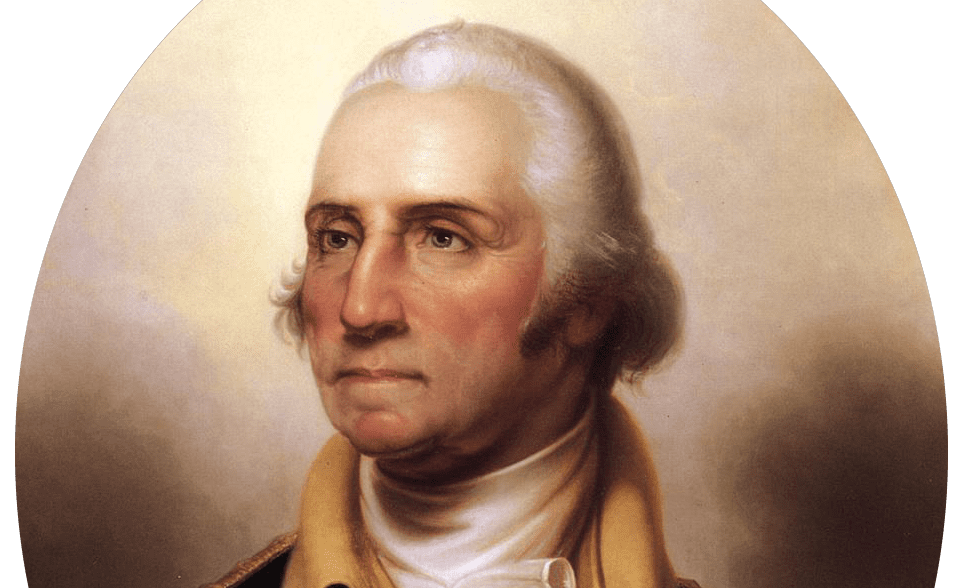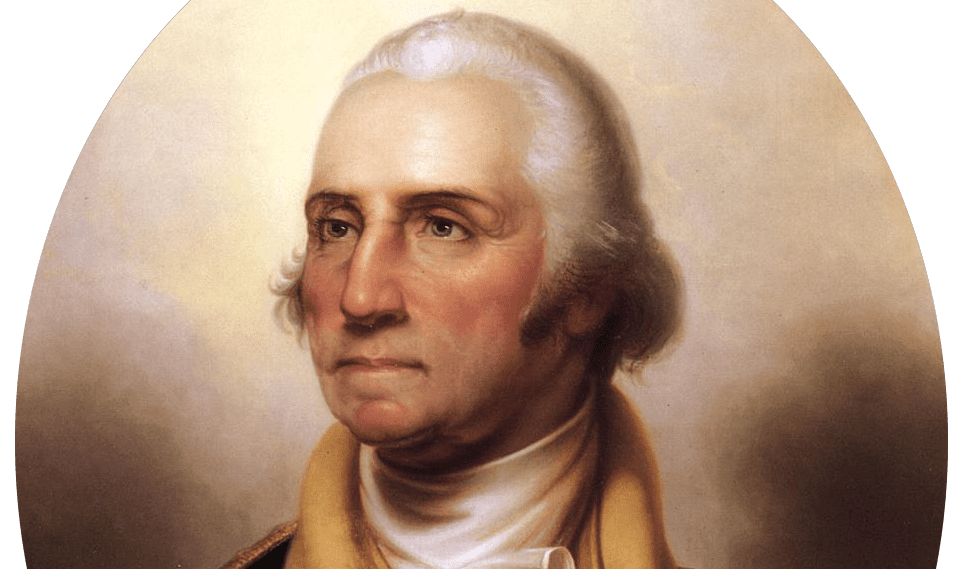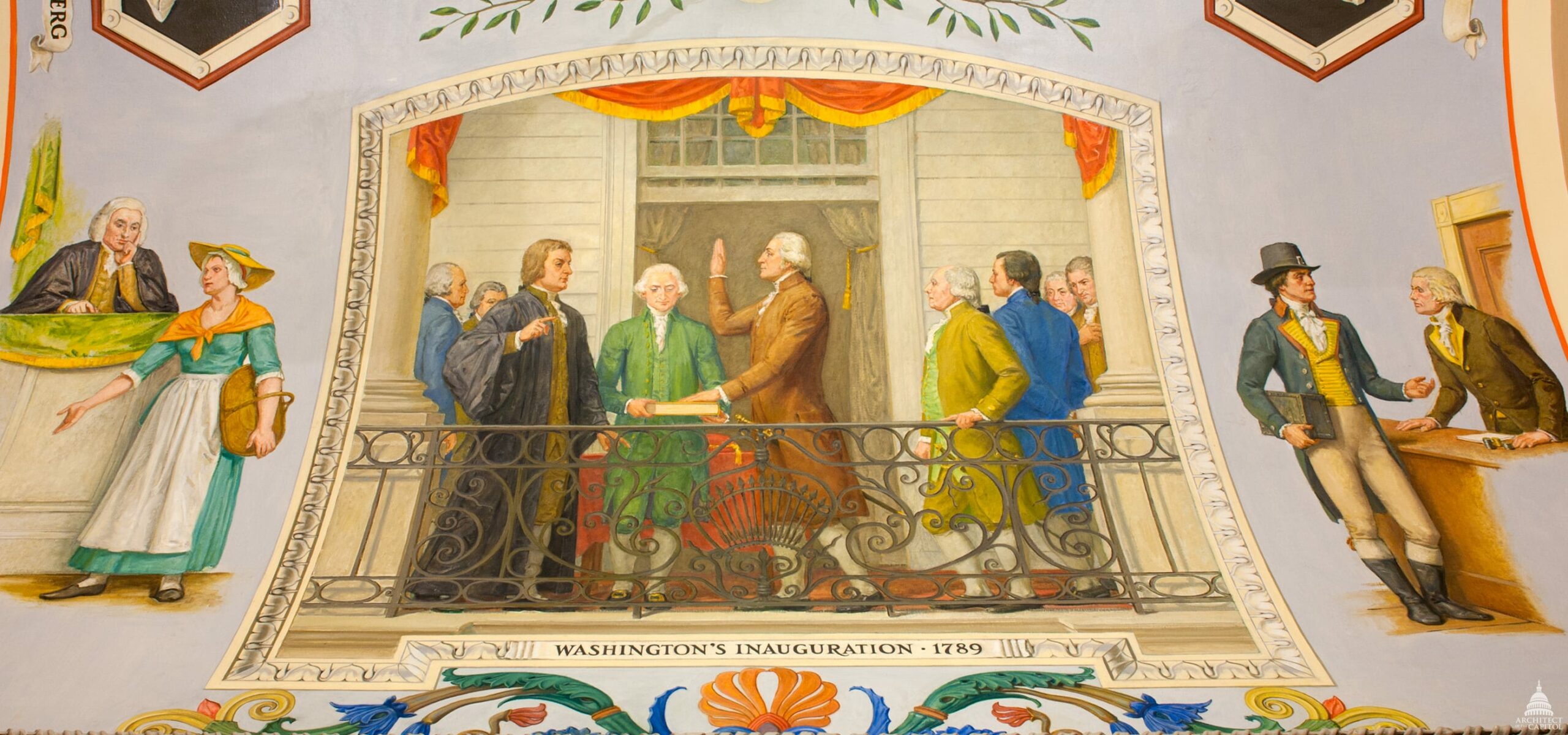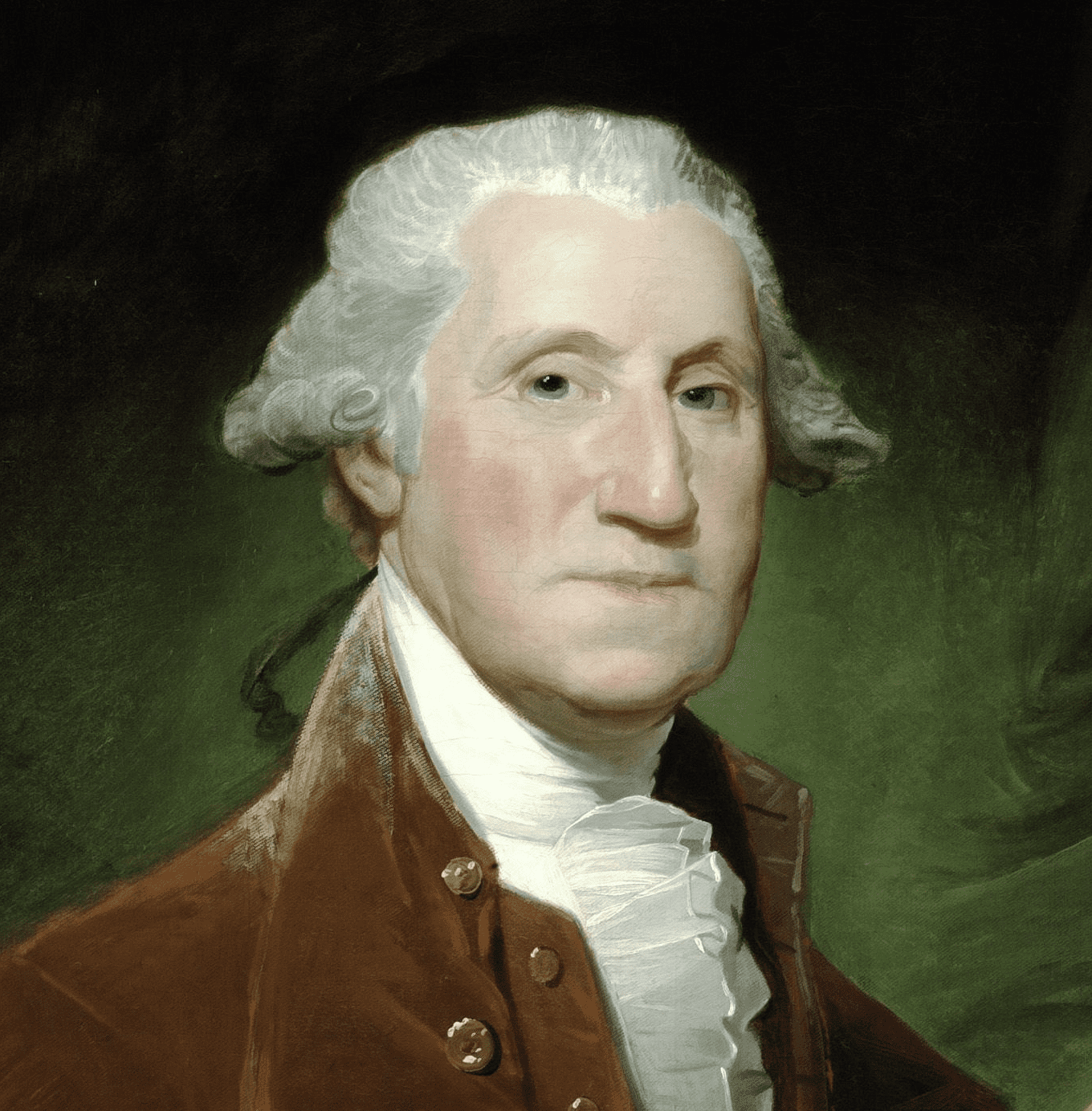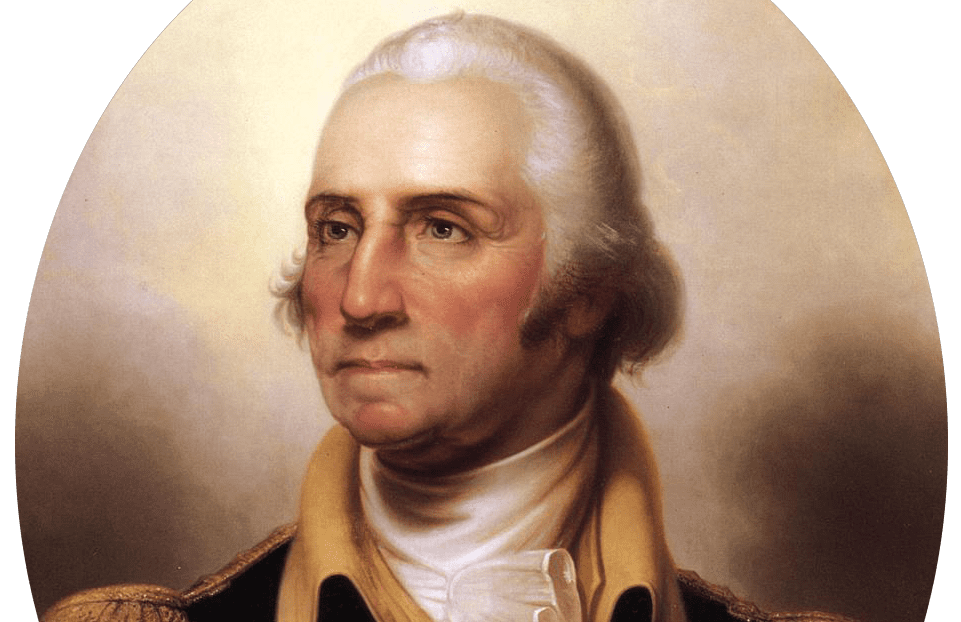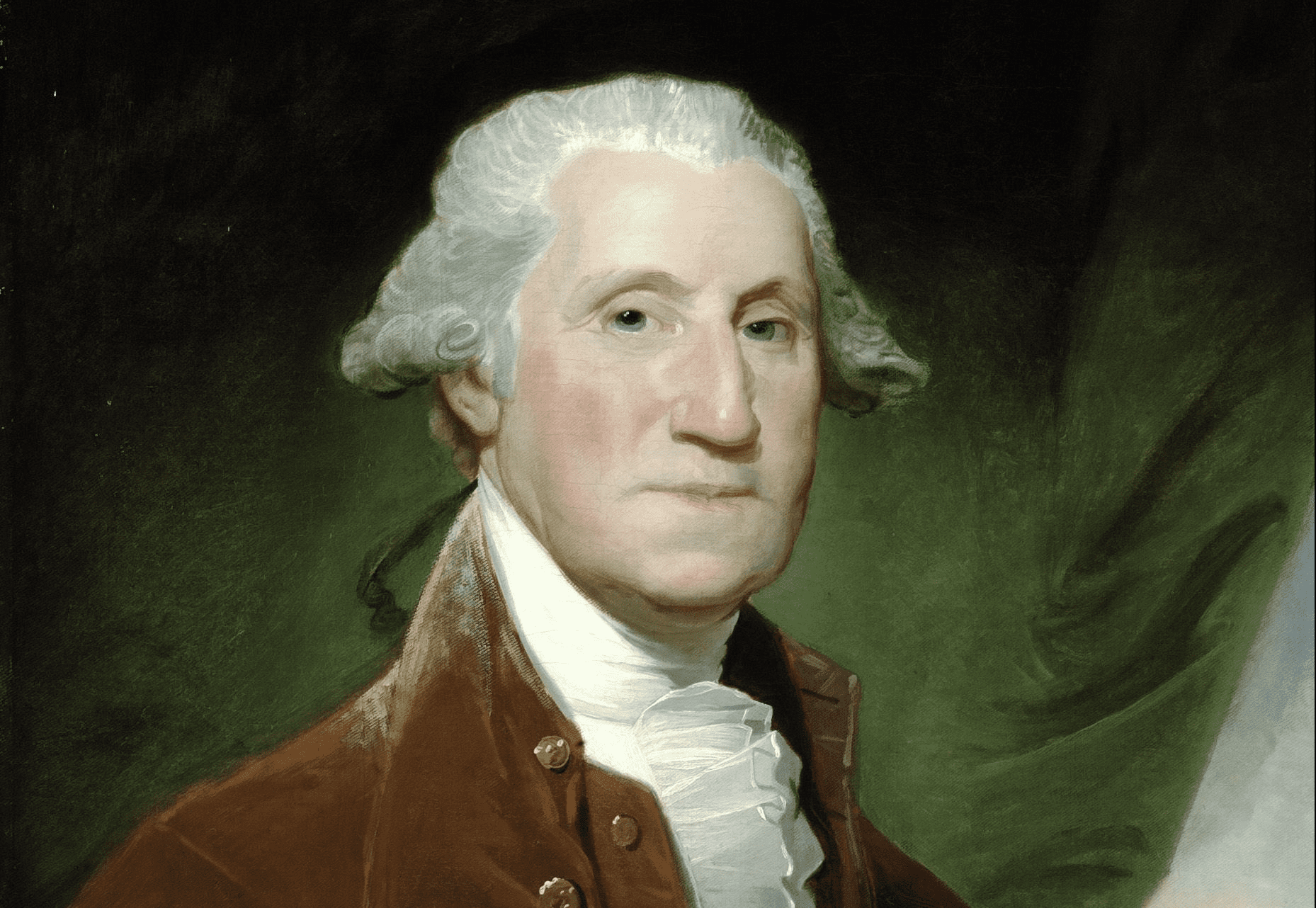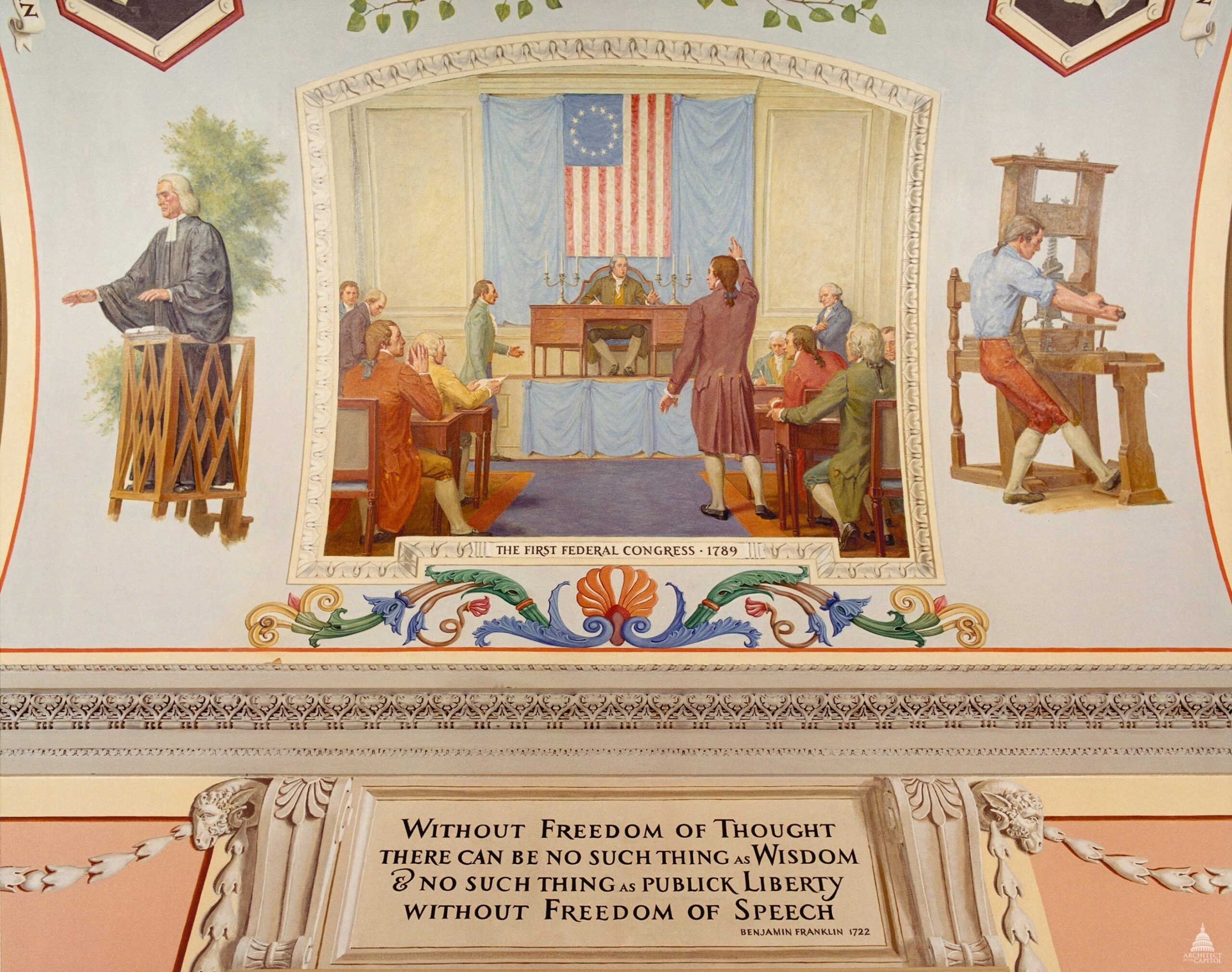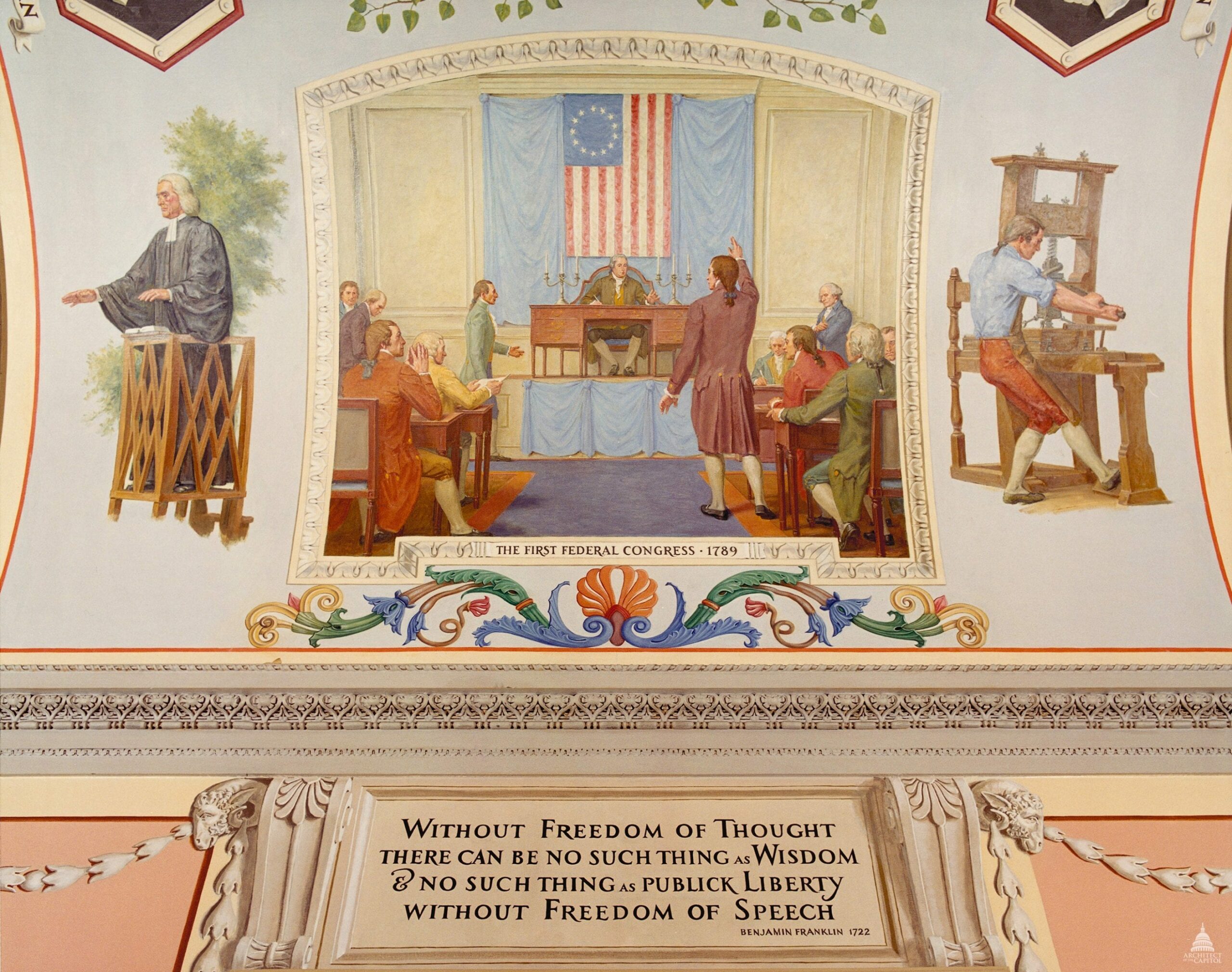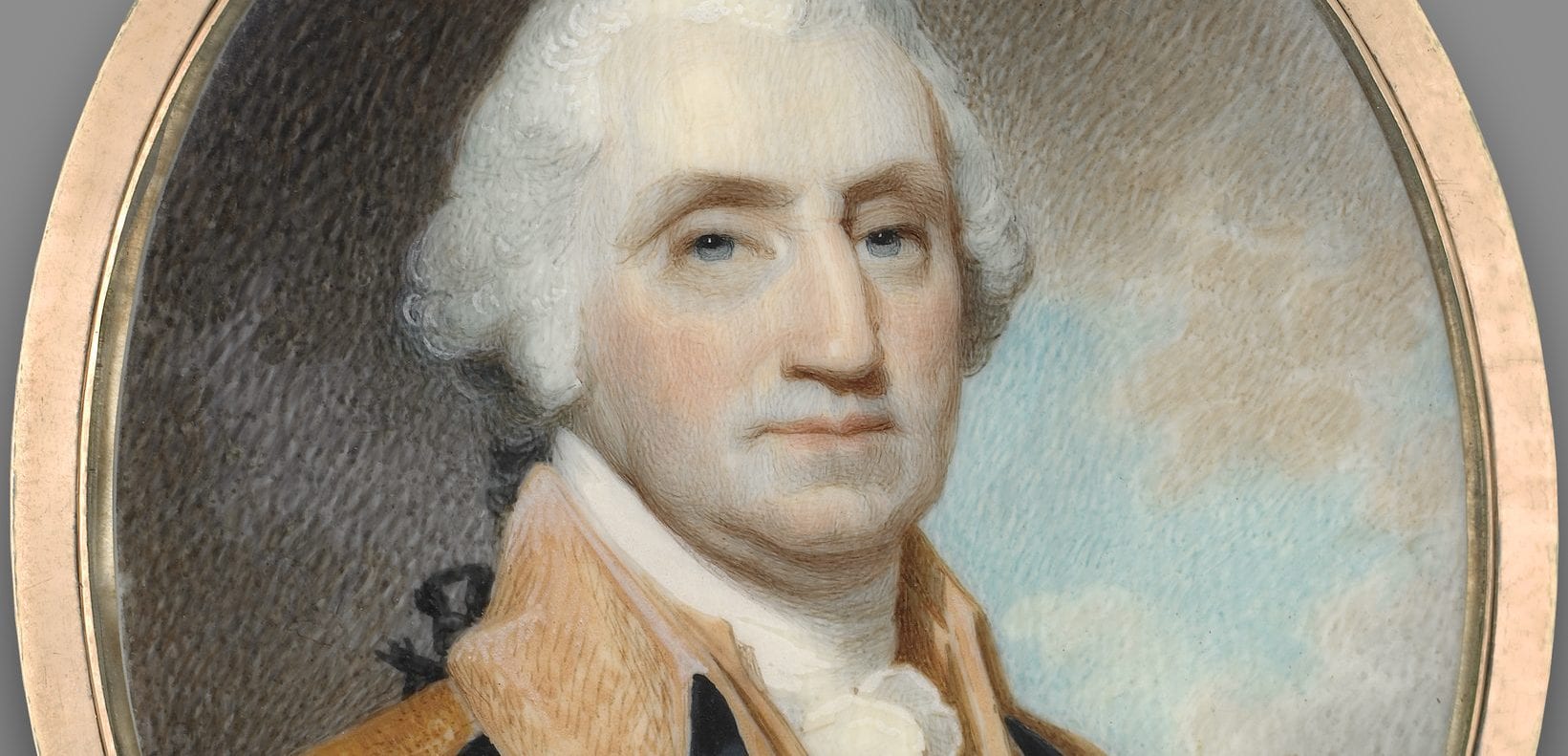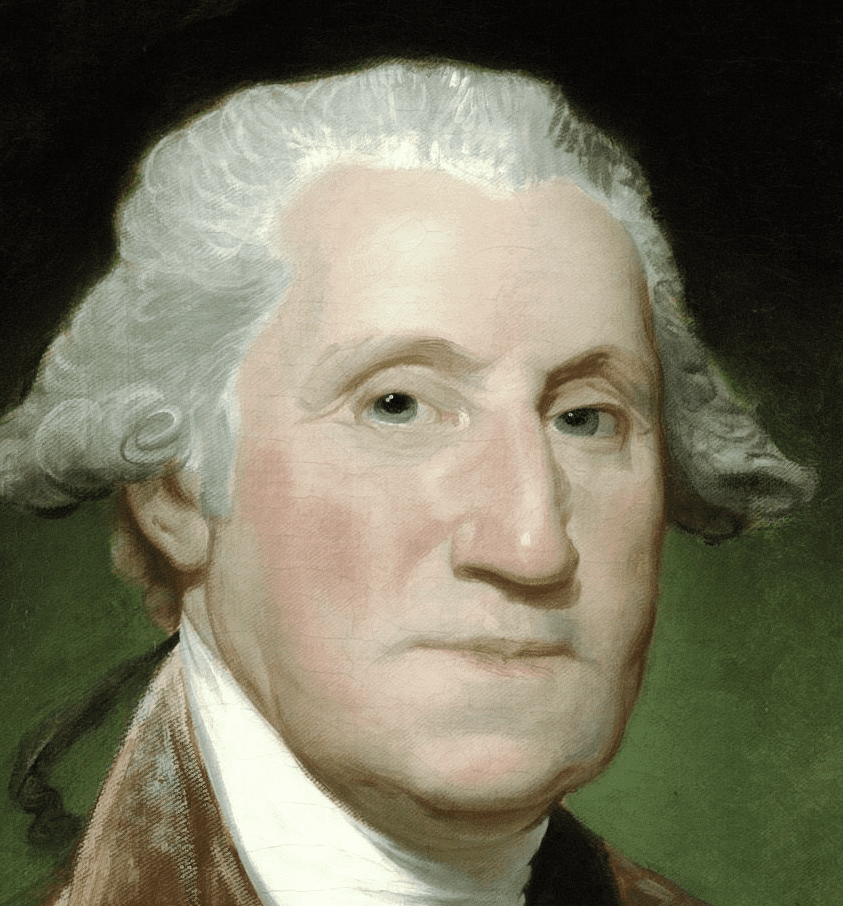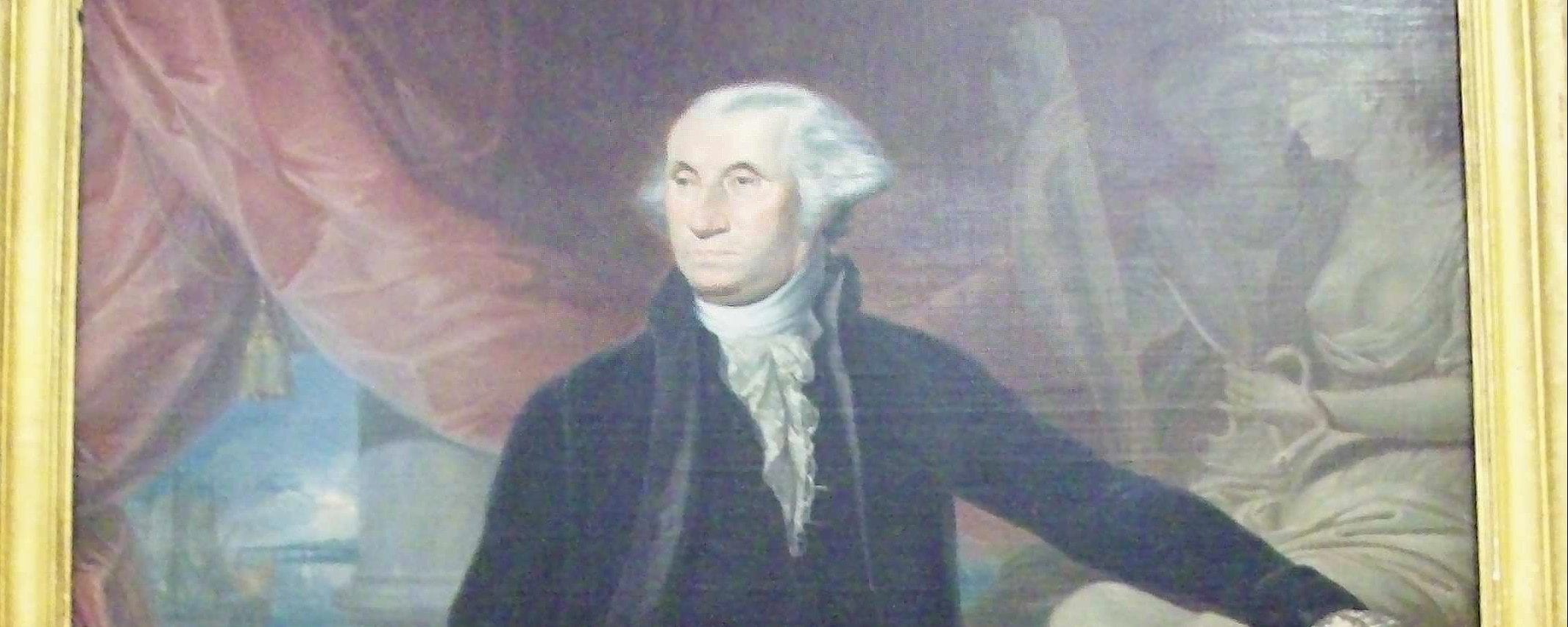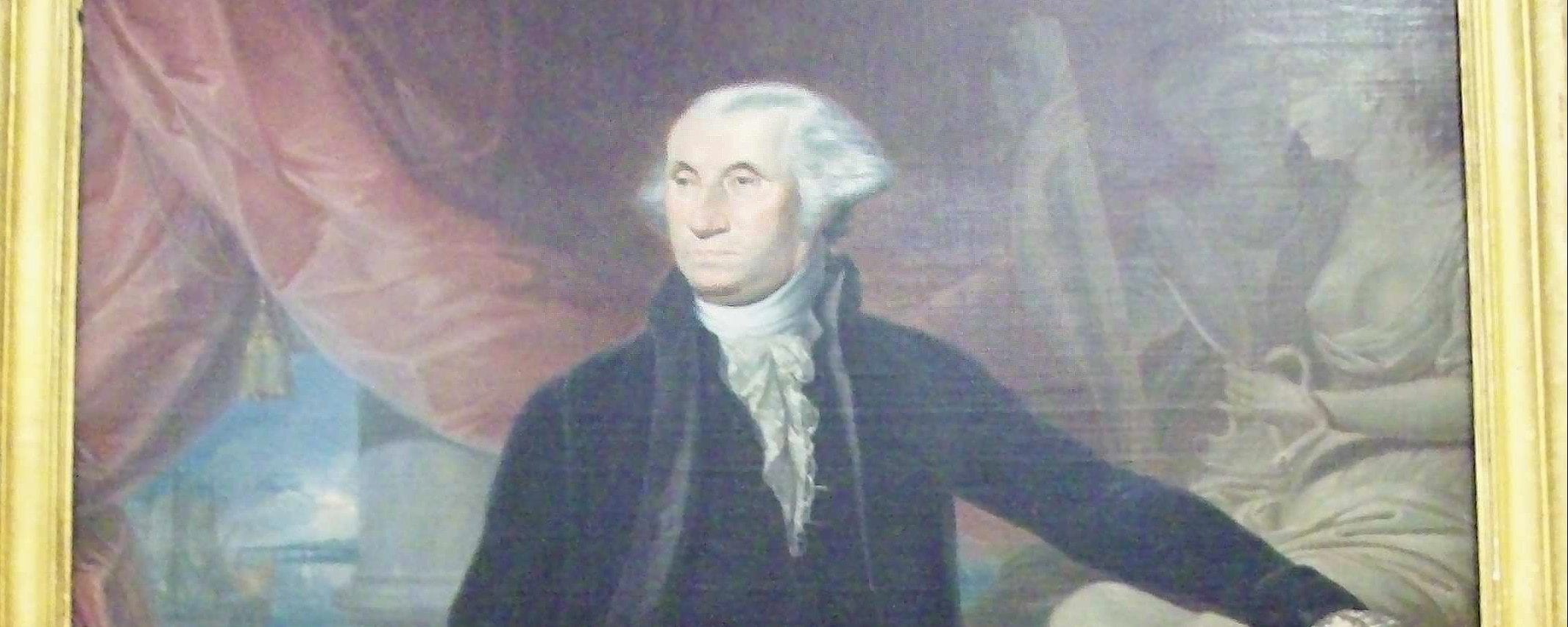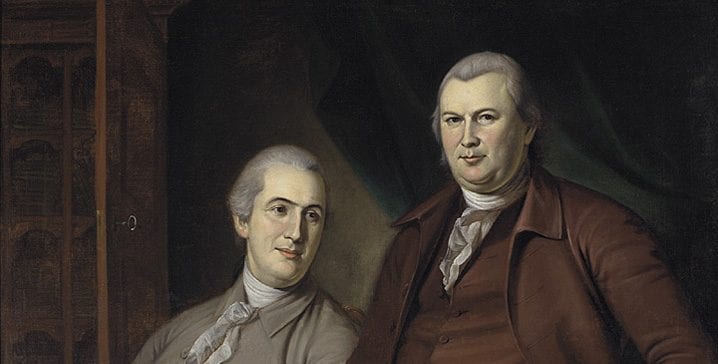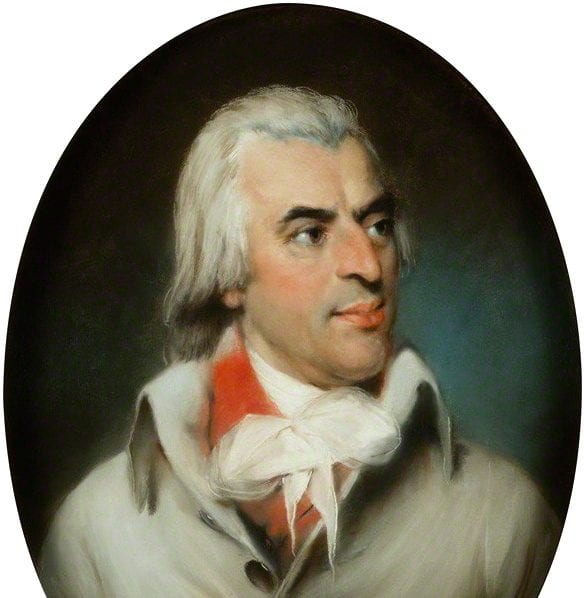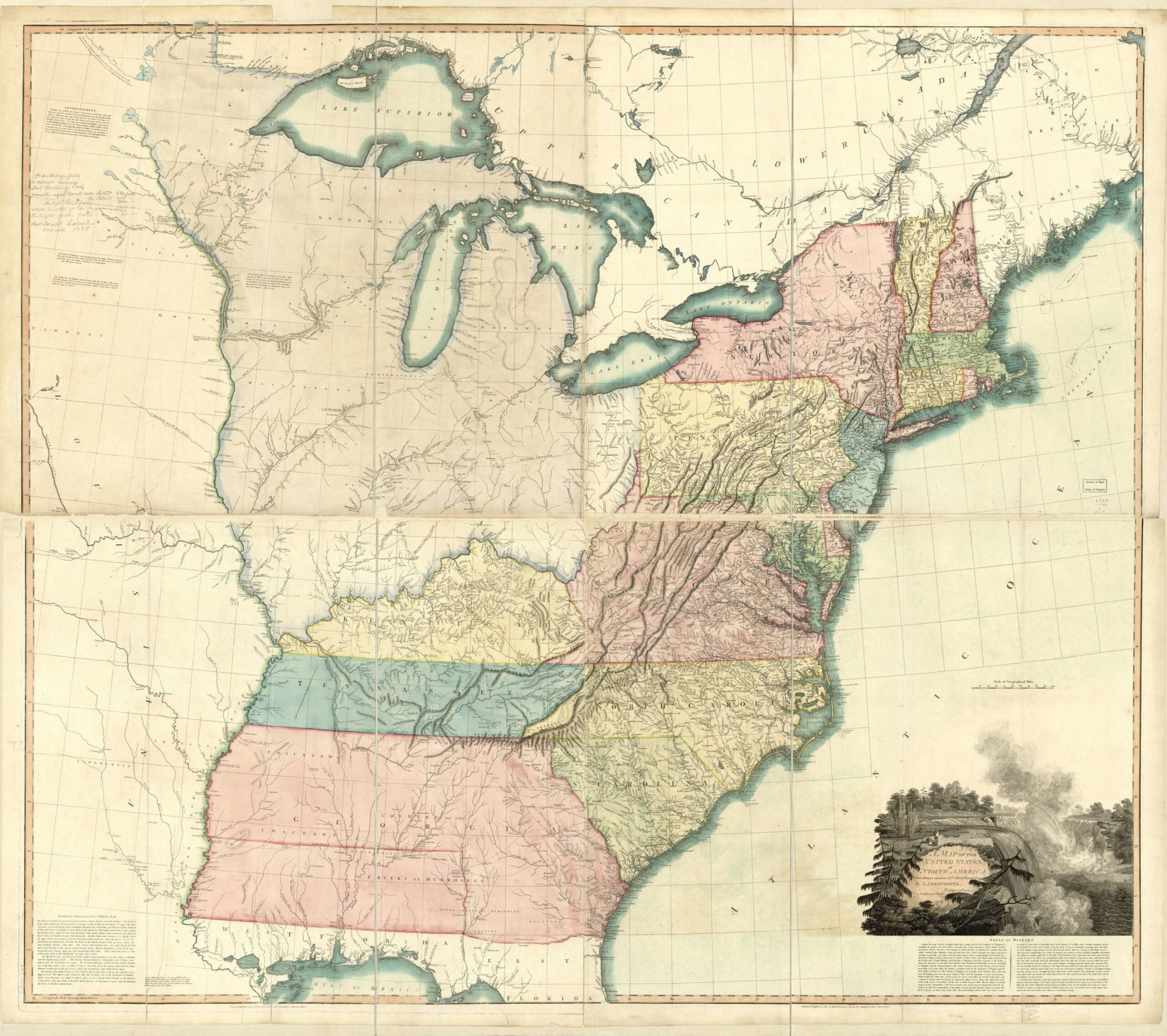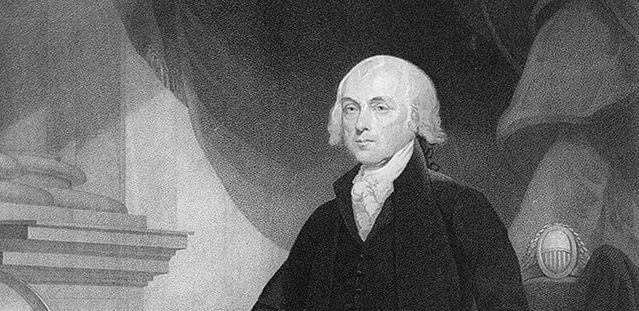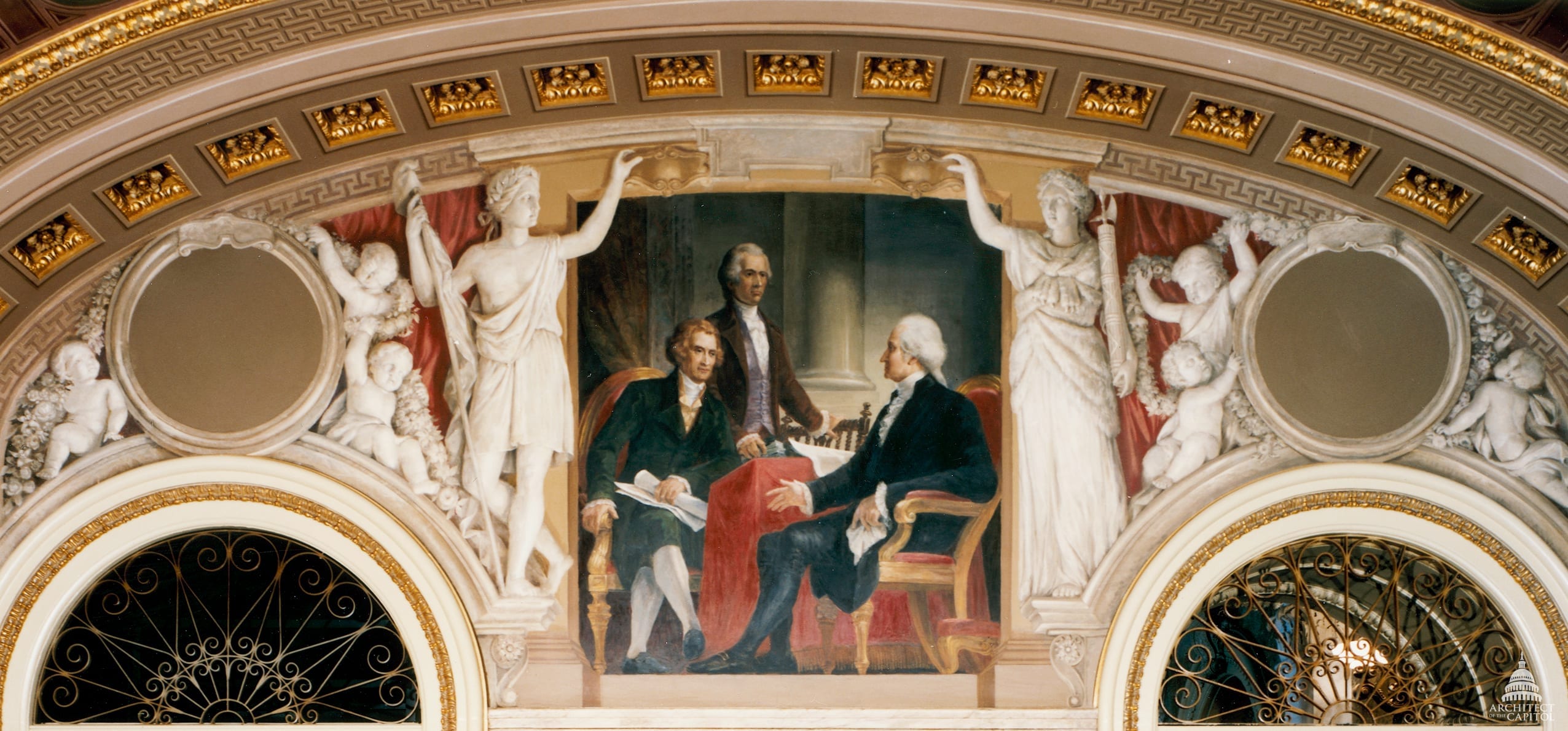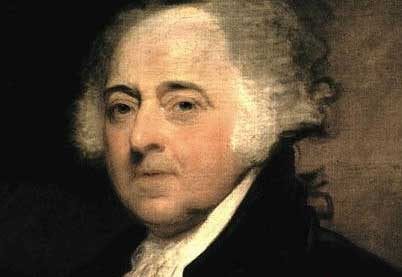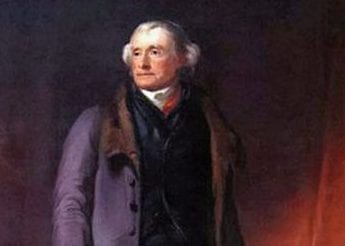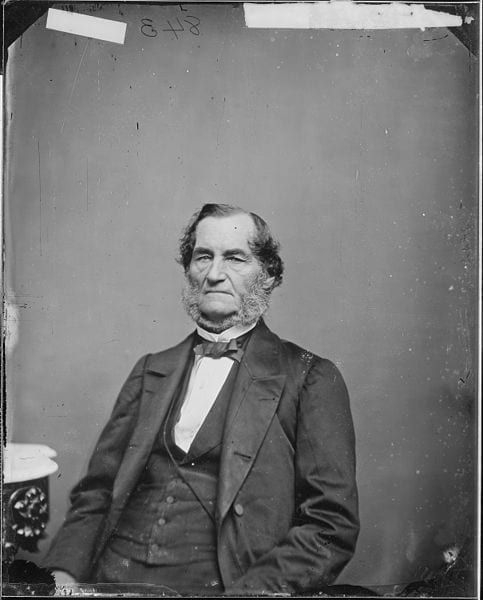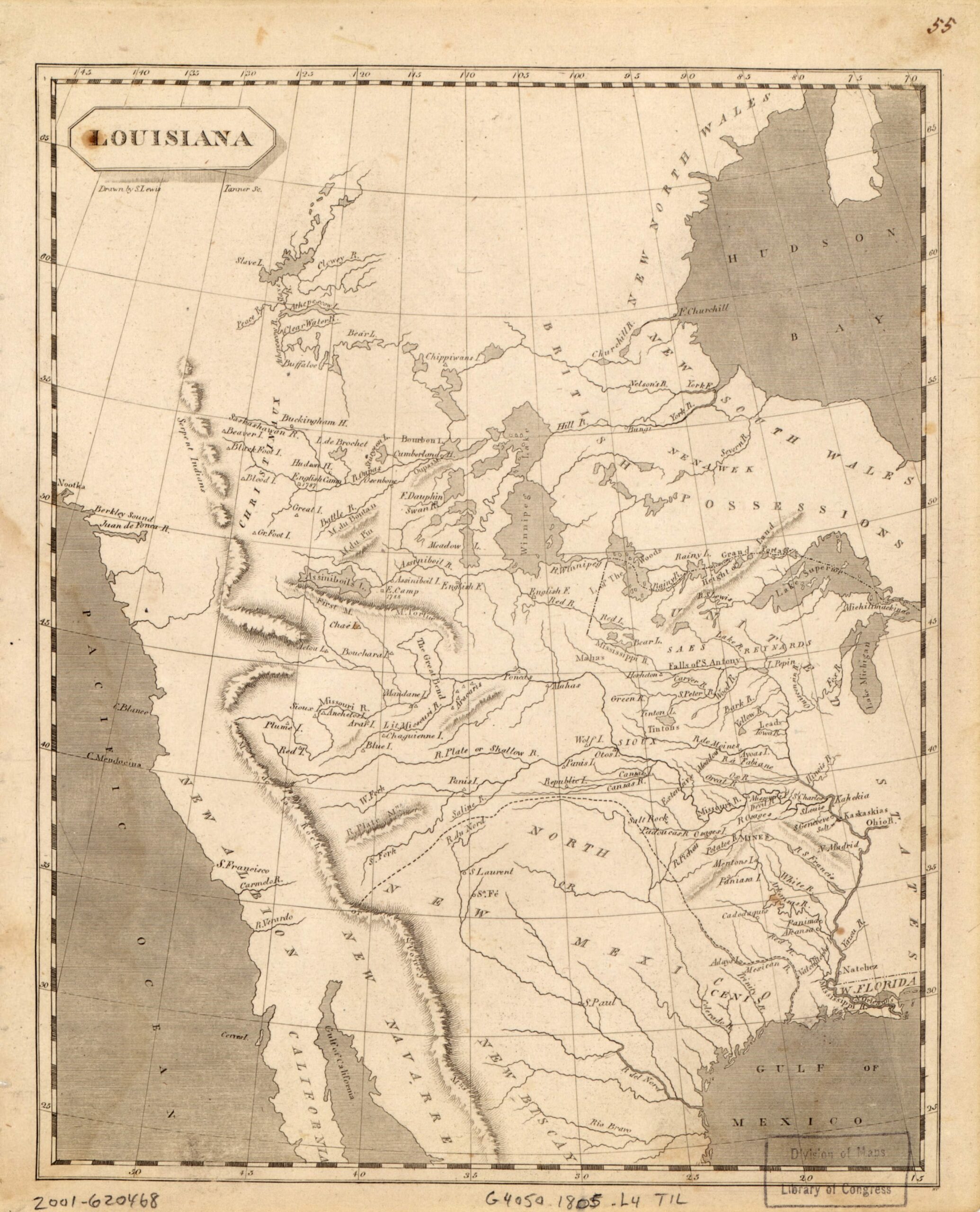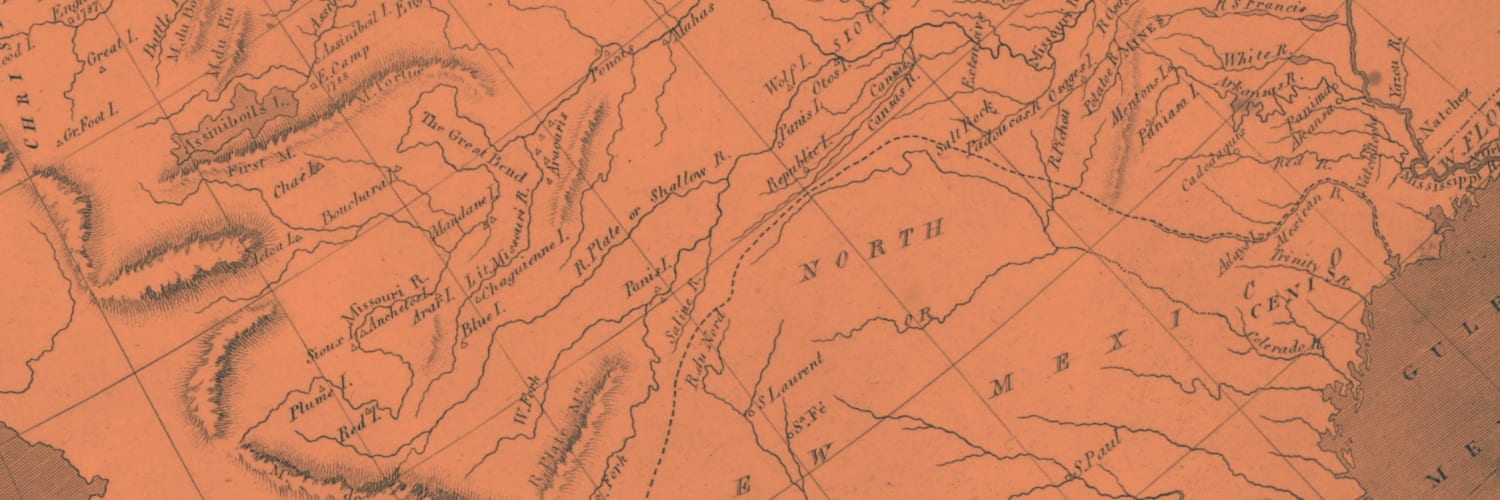


Introduction
Just as the Constitution is silent on the process for removing an executive official, it is likewise does not state how to terminate a treaty. Does the president hold the power, or must the president seek the Senate’s advice and consent as he does for ratifying a treaty in the first place? This question emerged in 1793 in the context of heated partisan debate about foreign policy. England and France were at war again, and the United States had signed a mutual defense treaty with France in 1778. After Washington issued his Proclamation of Neutrality, Alexander Hamilton took the pen name Pacificus to defend Washington against critics. Pacificus’s defense of executive power was so broad that Thomas Jefferson urged James Madison to write a response: “For god’s sake, my dear Sir, take up your pen, select the most striking heresies, and cut him to pieces in the face of the public.” Madison took the pen name Helvidius to argue that Pacificus’s broad reading of the executive power was not the true reading of the Constitution. Notice the place of the Vesting Clause in Hamilton’s argument.
Source: “Pacificus No. I, [29 June 1793],” Founders Online, National Archives, https://goo.gl/bkwub2; ““Helvidius” Number 1, [24 August] 1793,” Founders Online, National Archives, https://goo.gl/R5Dpr2.
Pacificus No. 1, June 29, 1793
. . . The objections which have been raised against the Proclamation of Neutrality lately issued by the President have been urged in a spirit of acrimony and invective, which demonstrates, that more was in view than merely a free discussion of an important public measure; that the discussion covers a design of weakening the confidence of the People in the author of the measure; in order to remove or lessen a powerful obstacle to the success of an opposition to the government . . . .
The objections in question fall under three heads –
- That the Proclamation was without authority
- That it was contrary to our treaties with France
- That it was contrary to the gratitude, which is due from this to that country, for the succors rendered us in our own Revolution
- That it was out of time & unnecessary.
In order to judge of the solidity of the first of these objection[s], it is necessary to examine what is the nature and design of a proclamation of neutrality.
The true nature & design of such an act is – to make known to the powers at war and to the Citizens of the Country, whose Government does the Act, that such a country is in the condition of a Nation at Peace with the belligerent parties, and under no obligations of treaty, to become an associate in the war with either of them; that this being its situation its intention is to observe a conduct conformable with it and to perform towards each the duties of neutrality; and as a consequence of this state of things, to give warning to all within its jurisdiction to abstain from acts that shall contravene those duties, under the penalties which the laws of the land (of which the law of Nations is a part) annexes to acts of contravention.
This, and no more, is conceived to be the true import of a Proclamation of Neutrality.
It does not imply, that the Nation which makes the declaration will forbear to perform to any of the warring Powers any stipulations in Treaties which can be performed without rendering it an associate or party in the war. It therefore does not imply in our case, that the United States will not make those distinctions, between the present belligerent powers, which are stipulated in the 17th and 22d articles of our Treaty with France; because these distinctions are not incompatible with a state of neutrality; they will in no shape render the United States an associate or party in the war. This must be evident, when it is considered, that even to furnish determinate succors, of a certain number of Ships or troops, to a Power at War, in consequence of antecedent treaties having no particular reference to the existing war, is not inconsistent with neutrality; a position well established by the doctrines of writers and the practice of Nations.
But no special aids, succors or favors having relation to war, not positively and precisely stipulated by some treaty of the above description, can be afforded to either party, without a breach of neutrality.
In stating that the Proclamation of Neutrality does not imply the nonperformance of any stipulations of treaties which are not of a nature to make the Nation an associate or party in the war, it is conceded that an execution of the clause of Guarantee contained in the 11th article of our of Alliance with France would be contrary to the sense and spirit of the proclamation; because it would engage use with our whole force as an associate or auxiliary in the war; it would be much more than the cause of a definite limited succor, previously ascertained.
It follows that the proclamation is virtually a manifestation of the sense of the Government that the United States are, under the circumstances of the case, not bound to execute the clause of Guarantee.
If this be a just view of the true force and import of the proclamation, it will remain to see whether the President in issuing it acted within his proper sphere, or stepped beyond the bounds of his constitutional authority and duty.
It will not be disputed . . . . that a Proclamation of Neutrality, where a nation is at liberty to keep out of a war in which other nations are engaged and means so to do, is a usual and a proper measure. Its main object and effect are to prevent the Nation being immediately responsible for acts done by its citizens, without the privity[1] or connivance of the Government, in contravention of the principles of neutrality.
An object this [is] of the greatest importance to a country whose true interest lies in the preservation of peace.
The inquiry then is – what department of the government of the United States is the proper one to make a declaration of neutrality in the cases in which the engagements of the nation permit and its interests require such a declaration.
A correct and well-informed mind will discern at once that it can belong neither to the legislative nor judicial department and, of course, must belong to the executive.
The legislative department is not the organ of intercourse between the United States and foreign nations. It is charged neither with making nor interpreting treaties. It is therefore not naturally that organ of the government which is to pronounce the existing condition of the nation, with regard to foreign powers, or to admonish the citizens of their obligations and duties as founded upon that condition of things. Still less is it charged with enforcing the execution and observance of these obligations and those duties.
It is equally obvious that the act in question is foreign to the judiciary department of the government. The province of that department is to decide litigations in particular cases. It is indeed charged with the interpretation of treaties; but it exercises this function only in the litigated cases; that is where contending parties bring before it a specific controversy. It has no concern with pronouncing upon the external political relations of treaties between government and government.
It must then of necessity belong to the executive department to exercise the function in question – when a proper case for the exercise of it occurs.
It appears to be connected with that department in various capacities, as the organ of intercourse between the nation and foreign nations – as the interpreter of the national treaties in those cases in which the judiciary is not competent, that is in the cases between government and government – as that power, which is charged with the execution of the laws, of which treaties form a part – as that power which is charged with the command and application of the public force.
This view of the subject is so natural and obvious – so analogous to general theory and practice – that no doubt can be entertained of its justness, unless such doubt can be deduced from particular provisions of the Constitution of the United States.
Let us see then if cause for such doubt is to be found in that constitution.
The second Article of the Constitution of the United States, section 1st, established this general proposition, that “The executive power shall be vested in a President of the United States of America.”
The same article in a succeeding section proceeds to designate particular cases of Executive Power. It declares among other things that the President shall be Commander in Chief of the army and navy of the United States and of the militia of the several states when called into the actual service of the United States, that he shall have power by and with the advice of the Senate to make treaties; that it shall be his duty to receive ambassadors and other public Ministers and to take care that the laws be faithfully executed.
It would not consist with the rules of sound construction to consider this enumeration of particular authorities as derogating from the more comprehensive grant contained in the general clause, further than as it may be coupled with express restrictions or qualifications; as in regard to the cooperation of the Senate in the appointment of Officers and the making of treaties; which are qualifications of the general executive powers of appointing officers and making treaties: Because the difficulty of a complete and perfect specification of all the cases of executive authority would naturally dictate the use of general terms – and would render it improbable that a specification of certain particulars was designed as a substitute for those terms, when antecedently used. The different mode of expression employed in the Constitution in regard to the two powers, the Legislative and the Executive, serves to confirm this inference. In the article which grants the legislative powers of the Government the expressions are – “All Legislative powers herein granted shall be vested in a Congress of the United States;” in that which grants the Executive Power the expressions are, as already quoted: the Executive Power shall be vested in a President of the United States of America.”
The enumeration ought rather therefore to be considered as intended by way of greater caution, to specify and regulate the principal articles implied in the definition of Executive Power; leaving the rest to flow from the general grant of that power, interpreted in conformity to other parts [of] the Constitution and to the principles of free government.
The general doctrine then of our Constitution is, that the EXECUTIVE POWER of the nation is vested in the president; subject only to the exceptions and qualifications which are expressed in the instrument.
Two of these have been already noticed – the participation of the Senate in the appointment of officers and the making of treaties. A third remains to be mentioned: the right of the Legislature “to declare war and grant letters of marque and reprisal.”
With these exceptions, the Executive Power of the Union is completely lodged in the President. This mode of construing the Constitution has indeed been recognized by Congress in formal acts, upon full consideration and debate. The power of removal from office is an important instance.[2]
And since upon general principles for reasons already given, the issuing of a proclamation of neutrality is merely an Executive Act; since also the general executive power of the Union is vested in the president, the conclusion is, that the step, which has been taken by him, is liable to no just exception on the score of authority.
It may be observed that this inference would be just if the power of declaring war had [not] been vested in the Legislature, but that [this] power naturally includes the right of judging whether the nation is under obligations to make war or not.
The answer to this is, that however true it may be, that the right of the Legislature to declare war includes the right of judging whether the Nation be under obligations to make war or not – it will not follow that the Executive is in any case excluded from a similar right of judgment, in the execution of its own functions.
If the Legislature have a right to make war on the one hand – it is on the other the duty of the Executive to preserve peace till war is declared; and in fulfilling that duty, it must necessarily possess a right of judging what is the nature of the obligations which the treaties of the country impose on the Government; and when in pursuance of this right it has concluded that there is nothing in them inconsistent with a state of neutrality, it becomes both its province and its duty to enforce the laws incident to that state of the nation. The Executive is charged with the execution of all laws, the laws of nations as well as the municipal law, which recognizes and adopts those laws. It is consequently bound, by faithfully executing the laws of neutrality, when that is the state of the nation, to avoid giving a cause of war to foreign Powers.
This is the direct and proper end of the proclamation of neutrality. It declares to the United States their situation with regard to the Powers at war and makes known to the Community that the laws incident to that situation will be enforced. In doing this, it conforms to an established usage of Nations, the operation of which as before remarked is to obviate a responsibility on the part of the whole Society, for secret and unknown violations of the rights of any of the warring parties by its citizens.
Those who object to the proclamation will readily admit that it is the right and duty of the Executive to judge of, or to interpret, those articles of our treaties which give to France particular privileges, in order to the enforcement of those privileges: But the necessary consequence of this is, that the Executive must judge what are the proper bounds of those privileges – what rights are given to other nations by our treaties with them – what rights the law of Nature and Nations gives and our treaties permit, in respect to those nations with whom we have no treaties; in fine what are the reciprocal rights and obligations of the United States and of all and each of the powers at war.
The right of the Executive to receive ambassadors and other public Ministers may serve to illustrate the relative duties of the Executive and Legislative departments. This right includes that of judging, in the case of a revolution of government in a foreign country, whether the new rulers are competent organs of the National Will and ought to [be] recognized or not: And where a treaty antecedently exists between the United States and such nation that right involves the power of giving operation or not to such treaty. For until the new Government is acknowledged, the treaties between the nations, as far at least as regards public rights, are of course suspended.
This power of determining virtually in the case supposed upon the operation of national treaties as a consequence, of the power to receive ambassadors and other public Ministers, is an important instance of the right of the Executive to decide the obligations of the nation with regard to foreign nations. To apply it to the case of France, if there had been a treaty of alliance offensive [and] defensive between the United States and that country, the unqualified acknowledgement of the new Government would have put the United States in a condition to become an associate in the war in which France was engaged – and would have laid the Legislature under an obligation, if required, and there was otherwise no valid excuse, of exercising its power of declaring war.
This serves as an example of the right of the Executive, in certain cases, to determine the condition of the Nation, though it may consequentially affect the proper or improper exercise of the power of the Legislature to declare war. The Executive indeed cannot control the exercise of that power further than by the exercise of its general right of objecting to all acts of the Legislature; liable to being overruled by two thirds of both houses of Congress. The Legislature is free to perform its own duties according to its own duties according to its own sense of them – though the Executive in the exercise of its constitutional powers, may establish an antecedent state of things which ought to weigh in the legislative decisions. From the division of the Executive Power there results, in reference to it, a concurrent authority, in the distributed cases.
Hence in the case stated, though treaties can only be made by the President and Senate, their activity may be continued or suspended by the President alone.
No objection has been made to the President’s having acknowledged the Republic of France, by the reception of its Minister, without having consulted the Senate; though that body is connected with him in the making of treaties, and though the consequence of his act of reception is to give operation to the treaties heretofore made with that country: But he is censured for having declared the United States to be in a state of peace & neutrality, with regard to the Powers at War; because the right of changing that state & declaring war belongs to the Legislature.
It deserves to be remarked, that as the participation of the Senate in the making of treaties and the power of the Legislature to declare war are exceptions out of the general “Executive Power” vested in the President, they are to be construed strictly – and ought to be extended no further than is essential to their execution.
While therefore the Legislature can alone declare war, can alone actually transfer the nation from a state of peace to a state of war — it belongs to the “Executive Power” to do whatever else the laws of nations cooperating with the treaties of the country enjoin, in the intercourse of the United States with foreign Powers.
In this distribution of powers the wisdom of our Constitution is manifested. It is the province and duty of the Executive to preserve to the nation the blessings of peace. The Legislature alone can interrupt those blessings, by placing the nation in a state of war.
But though it has been thought advisable to vindicate the authority of the Executive on this broad and comprehensive ground – it was not absolutely necessary to do so. That clause of the Constitution which makes it his duty to “take care that the laws be faithfully executed” might alone have been relied upon, and this simple process of argument pursued.
The President is the constitutional Executor of the laws. Our treaties and the laws of nations form a part of the law of the land. He who is to execute the laws must first judge for himself of their meaning. In order to the observance of that conduct, which the laws of nations combined with our treaties prescribed to this country, in reference to the present war in Europe, it was necessary for the President to judge for himself whether there was anything in our treaties incompatible with an adherence to neutrality. Having judged that there was not, he had a right, and if in his opinion the interests of the nation required it, it was his duty, as Executor of the laws, to proclaim the neutrality of the nation, to exhort all persons to observe it, and to warn them of the penalties which would attend its nonobservance.
The Proclamation has been represented as enacting some new law. This is a view of it entirely erroneous. It only proclaims a fact with regard to the existing state of the nation, informs the citizens of what the laws previously established require of them in that state, and warns them that these laws will be put in execution against the infractors of them.
Helvidius Number 1, 24 August 1793
Several pieces with the signature of PACIFICUS were lately published, which have been read with singular pleasure and applause, by the foreigners and degenerate citizens among us, who hate our republican government, and the French revolution; whilst the publication seems to have been too little regarded, or too much despised by the steady friends to both.
Had the doctrines inculcated by the writer, with the natural consequences from them, been nakedly presented to the public, this treatment might have been proper. Their true character would then have struck every eye, and been rejected by the feelings of every heart. But they offer themselves to the reader in the dress of an elaborate dissertation; they are mingled with a few truths that may serve them as a passport to credulity; and they are introduced with professions of anxiety for the preservation of peace, for the welfare of the government, and for the respect due to the present head of the executive, that may prove a snare to patriotism.
In these disguises, they have appeared to claim the attention I propose to bestow on them; with a view to show, from the publication itself, that under color of vindicating an important public act, of a chief magistrate, who enjoys the confidence and love of his country, principles are advanced which strike at the vitals of its Constitution, as well as its honor and true interest.
As it is not improbable that attempts may be made to apply insinuations, which are seldom spared when particular purposes are to be answered, to the author of the ensuing observations it may not be improper to premise, that he is a friend to the Constitution, that he wishes for the preservation of peace, and that the present chief magistrate has not a fellow-citizen who is penetrated with deeper respect for his merits, or feels a purer solicitude for his glory.
This declaration is made with no view of courting a more favorable ear to what may be said than it deserves. The sole purpose of it is, to obviate imputations which might weaken the impressions of truth; and which are the more likely to be resorted to, in proportion as solid and fair arguments may be wanting.
The substance of the first piece, sifted from its inconsistencies and its vague expressions, may be thrown into the following propositions:
That the powers of declaring war and making treaties are, in their nature, executive powers;
That being particularly vested by the Constitution in other departments, they are to be considered as exceptions out of the general grant to the executive department;
That being, as exceptions, to be construed strictly, the powers not strictly within them, remain with the executive;
That the executive consequently, as the organ of intercourse with foreign nations, and the interpreter and executor of treaties, and the law of nations, is authorized, to expound all articles of treaties, those involving questions of war and peace, as well as others; to judge of the obligations of the United States to make war or not, under any casus federis[3] or eventual operation of the contract, relating to war; and, to pronounce the state of things resulting from the obligations of the United States, as understood by the executive;
That in particular the executive had authority to judge whether in the case of the mutual guaranty between the United States and France, the former were bound by it to engage in the war;
That the executive has, in pursuance of that authority, decided that the United States are not bound; And,
That its proclamation of the 22d of April last, is to be taken as the effect and expression of that decision.
The basis of the reasoning is, we perceive, the extraordinary doctrine, that the powers of making war and treaties, are in their nature executive; and therefore comprehended in the general grant of executive power, where not specially and strictly excepted out of the grant.
Let us examine this doctrine; and that we may avoid the possibility of misstating the writer, it shall be laid down in his own words: a precaution the more necessary, as scarce anything else could outweigh the improbability, that so extravagant a tenet should be hazarded, at so early a day, in the face of the public.
His words are: “Two of these (exceptions and qualifications to the executive powers) have been already noticed – the participation of the Senate in the appointment of officers, and the making of treaties. A third remains to be mentioned – the right of the legislature to declare war, and grant letters of marque and reprisal.”
Again: “It deserves to be remarked, that as the participation of the Senate in the making treaties, and the power of the legislature to declare war, are exceptions out of the general executive power, vested in the President, they are to be construed strictly, and ought to be extended no farther than is essential to their execution.”
If there be any countenance to these positions, it must be found either first, in the writers, of authority, on public law; or second, in the quality and operation of the powers to make war and treaties; or third, in the Constitution of the United States.
It would be of little use to enter far into the first source of information, not only because our own reason and our own Constitution, are the best guides; but because a just analysis and discrimination of the powers of government, according to their executive, legislative, and judiciary qualities are not to expected in the works of the most received jurists, who wrote before a critical attention was paid to those objects, and with their eyes too much on monarchical governments, where all powers are confounded in the sovereignty of the prince. It will be found however, I believe, that all of them, particularly Wolfius, Burlamaqui and Vattel,[4] speak of the powers to declare war, to conclude peace, and to form alliances, as among the highest acts of the sovereignty; of which the legislative power must at least be an integral and preeminent part.
Writers, such as Locke and Montesquieu,[5] who have discussed more particularly the principles of liberty and the structure of government, lie under the same disadvantage, of having written before these subjects were illuminated by the events and discussions which distinguish a very recent period. Both of them too are evidently warped by a regard to the particular government of England, to which one of them owed allegiance; and the other professed an admiration bordering on idolatry. Montesquieu, however, has rather distinguished himself by enforcing the reasons and the importance of avoiding a confusion of the several powers of government, than by enumerating and defining the powers which belong to each particular class. And Locke, notwithstanding the early date of his work on civil government, and the example of his own government before his eyes, admits that the particular powers in question, which, after some of the writers on public law he calls federative, are really distinct from the executive, though almost always united with it, and hardly to be separated into distinct hands. Had he not lived under a monarchy, in which these powers were united; or had he written by the lamp which truth now presents to lawgivers, the last observation would probably never have dropt from his pen. But let us quit a field of research which is more likely to perplex than to decide, and bring the question to other tests of which it will be more easy to judge.
If we consult for a moment, the nature and operation of the two powers to declare war and make treaties, it will be impossible not to see that they can never fall within a proper definition of executive powers. The natural province of the executive magistrate is to execute laws, as that of the legislature is to make laws. All his acts therefore, properly executive, must presuppose the existence of the laws to be executed. A treaty is not an execution of laws: it does not presuppose the existence of laws. It is, on the contrary, to have itself the force of a law, and to be carried into execution, like all other laws, by the executive magistrate. To say then that the power of making treaties which are confessedly laws, belongs naturally to the department which is to execute laws, is to say, that the executive department naturally includes a legislative power. In theory, this is an absurdity – in practice a tyranny.
The power to declare war is subject to similar reasoning. A declaration that there shall be war, is not an execution of laws: it does not suppose pre-existing laws to be executed: it is not in any respect, an act merely executive. It is, on the contrary, one of the most deliberative acts that can be performed; and when performed, has the effect of repealing all the laws operating in a state of peace, so far as they are inconsistent with a state of war: and of enacting as a rule for the executive, a new code adapted to the relation between the society and its foreign enemy. In like manner, a conclusion of peace annuls all the laws peculiar to a state of war, and revives the general laws incident to a state of peace.
These remarks will be strengthened by adding that treaties, particularly treaties of peace, have sometime the effect of changing not only the external laws of the society, but operate also on the internal code, which is purely municipal, and to which the legislative authority of the country is of itself competent and complete.
From this view of the subject it must be evident, that although the executive may be a convenient organ of preliminary communications with foreign governments, on the subjects of treaty or war; and the proper agent for carrying into execution the final determinations of the competent authority; yet it can have no pretensions from the nature of the powers in question compared with the nature of the executive trust, to that essential agency which gives validity to such determinations.
It must be further evident that, if these powers be not in their nature purely legislative, they partake so much more of that, than of any other quality, that under a constitution leaving them to result to their most natural department, the legislature to be noted is, without a rival in its claim.
Another important inference to be noted is, that the powers of making war and treaty being substantially of a legislative, not an executive nature, the rule of interpreting exceptions strictly, must narrow instead of enlarging executive pretensions on those subjects.
- It remains to be enquired whether there be any thing in the Constitution itself which shows that the powers of making war and peace are considered as of an executive nature, and as comprehended within a general grant of executive power.
It will not be pretended that this appears from any direct position to be found in the instrument.
If it were deducible from any particular expressions it may be presumed that the publication would have saved us the trouble of the research.
Does the doctrine then result from the actual distribution of powers among the several branches of the government? Or from any fair analogy between the powers of war and treaty and the enumerated powers vested in the executive alone?
Let us examine.
In the general distribution of powers, we find that of declaring war expressly vested in the Congress, where every other legislative power is declared to be vested, and without any other qualification than what is common to every other legislative act. The constitutional idea of this power would seem then clearly to be, that it is of a legislative and not an executive nature.
This conclusion becomes irresistible, when it is recollected, that the Constitution cannot be supposed to have placed either any power legislative in its nature, entirely among executive powers, or any power executive in its nature, entirely among legislative powers, without charging the Constitution, with that kind of intermixture and consolidation of different powers, which would violate a fundamental principle in the organization of free governments. If it were not unnecessary to enlarge on this topic here, it could be shown, that the Constitution was originally vindicated, and has been constantly expounded, with a disavowal of any such intermixture.
The power of treaties is vested jointly in the President and in the Senate, which is a branch of the legislature. From this arrangement merely, there can be no inference that would necessarily exclude the power from the executive class: since the senate is joined with the President in another power, that of appointing to offices, which as far as relate to executive offices at least, is considered as of an executive nature. Yet on the other hand, there are sufficient indications that the power of treaties is regarded by the constitution as materially different from mere executive power, and as having more affinity to the legislative than to the executive character.
One circumstance indicating this, is the constitutional regulation under which the Senate give their consent in the case of treaties. In all other cases the consent of the body is expressed by a majority of voices. In this particular case, a concurrence of two thirds at least is made necessary, as a substitute or compensation for the other branch of the legislature, which on certain occasions, could not be conveniently a party to the transaction.
But the conclusive circumstance is, that treaties when formed according to the constitutional mode, are confessedly to have the force and operation of laws, and are to be a rule for the courts in the controversies between man and man, as much as any other laws. They are even emphatically declared by the Constitution to be “the supreme law of the land.”
So far the argument from the Constitution is precisely in opposition to the doctrine. As little will be gained in its favor from a comparison of the two powers, with those particularly vested in the President alone.
As there are but few it will be most satisfactory to review them one by one.
“The President shall be commander in chief of the army and navy of the United States, and of the militia when called into actual service of the United States.”
There can be no relation worth examining between this power and the general power of making treaties. And instead of being analogous to the power of declaring war, it affords a striking illustration of the incompatibility of the two powers in the same hands. Those who are to conduct a war cannot in the nature of things, be proper or safe judges, whether a war ought to be commenced, continued, or concluded. They are barred from the latter functions by a great principle in free government, analogous to that which separates the sword from the purse, or the power of executing from the power of enacting laws. . . .
“He shall take care that the laws shall be faithfully executed and shall commission all officers of the United States.” To see the laws faithfully executed constitutes the essence of the executive authority. But what relation has it to the power of making treaties and war, that is, of determining what the laws shall be with regard to other nations? No other certainly than what subsists between the power of executing and enacting laws; no other consequently, than what forbids a coalition of the powers in the same department. . . .
It may be proper however to take notice of the power of removal from office, which appears to have been adjudged to the President by the laws establishing the executive departments; and which the writer has endeavored to press into his service. To justify any favorable inference from this case, it must be shown, that the powers of war and treaties are of a kindred nature to the power of removal, or at least are equally within a grant of executive power. Nothing of this sort has been attempted, nor probably will be attempted. Nothing can in truth be clearer, than that no analogy, or shade of analogy, can be traced between a power in the supreme officer responsible for the faithful execution of the laws, to displace a subaltern officer employed in the execution of the laws; and a power to make treaties, and to declare war, such as these have been found to be in their nature, their operation, and their consequences.
Thus it appears that by whatever standard we try this doctrine, it must be condemned as no less vicious in theory that it would be dangerous in practice. It is countenanced neither by the writers on law; nor by the nature of the powers themselves; nor by any general arrangements or particular expressions, or plausible analogies, to be found in the Constitution.
Whence then can the writer have borrowed it?
There is but one answer to this question.
The power of making treaties and the power of declaring war, are royal prerogatives in the British government, and are accordingly treated as executive prerogatives by British commentators.
We shall be the more confirmed in the necessity of this solution of the problem, by looking back to the era of the Constitution, and satisfying ourselves that the writer could not have been misled by the doctrines maintained by our own commentators on our own government. That I may not ramble beyond prescribed limits, I shall content myself with an extract from a work which entered into a systematic explanation and defence of the Constitution, and to which there has frequently been ascribed some influence in conciliating the public assent to the government in the form proposed. Three circumstances conspire in giving weight to this contemporary exposition. It was made at a time when no application to persons or measures could bias; The opinion given was not transiently mentioned, but formally and critically elucidated; It related to a point in the Constitution which must consequently have been viewed as of importance in the public mind. The passage relates to the power of making treaties; that of declaring war, being arranged with such obvious propriety among the legislative powers, as to be passed over without particular discussion.
“Tho’ several writers on the subject of government place that power (of making treaties) in the class of Executive authorities, yet this is evidently an arbitrary disposition. For if we attend carefully, to its operation, it will be found to partake more of the legislative than of the executive character, though it does not seem strictly to fall within the definition of either of them. The essence of the legislative authority, is to enact laws; or in other words, to prescribe rules for the regulation of the society. While the execution of the laws and the employment of the common strength, either for this purpose, or for the common defense, seem to comprise all functions of the Executive magistrate. The power of making treaties is plainly neither the one nor the other. It relates neither to the execution of the subsisting laws, nor to the enaction of new ones, and still less to an exertion of the common strength. Its objects are contracts with foreign nations, which have the force of law, but derive it from the obligations of good faith. They are not rules prescribed by the sovereign to the subject, but agreements between sovereign and sovereign. The power in question seems therefore to form a distinct department, and to belong properly neither to the legislative nor to the executive. The qualities elsewhere detailed as indispensable in the management of foreign negotiations, point out the executive as the most fit agent in those transactions: whilst the vast importance of the trust, and the operation of treaties as Laws, plead strongly for the participation of the whole or a part of the legislative body in the office of making them.”[6]
It will not fail to be remarked on this commentary, that whatever doubts may be started as to the correctness of its reasoning against the legislative nature of the power to make treaties: it is clear, consistent and confident, in deciding that the power is plainly and evidently not an executive power.
- 1. secret knowledge
- 2. See Document 3.
- 3. a “case for alliance”
- 4. Christian Wolff (1679-1754), Jean-Jacques Burlamaqui (1694-1748) and Emmerich de Vattel (1714-1767) were Enlightenment writers who had published works on international law.
- 5. John Locke (1632-1704) was an English philosopher whose Two Treatises of Government (1689) made the case for the right of revolution and for the necessity of a fundamental constitution. Charles-Louis de Secondat, baron de La Brède et de Montesquieu (1689-1755) was a French philosopher whose Spirit of the Laws (1748) was influential among Americans for its recommendations regarding separation of powers.
- 6. Federalist No. 75, written by Hamilton.
Pacificus No. 1
June 29, 1793
Conversation-based seminars for collegial PD, one-day and multi-day seminars, graduate credit seminars (MA degree), online and in-person.
